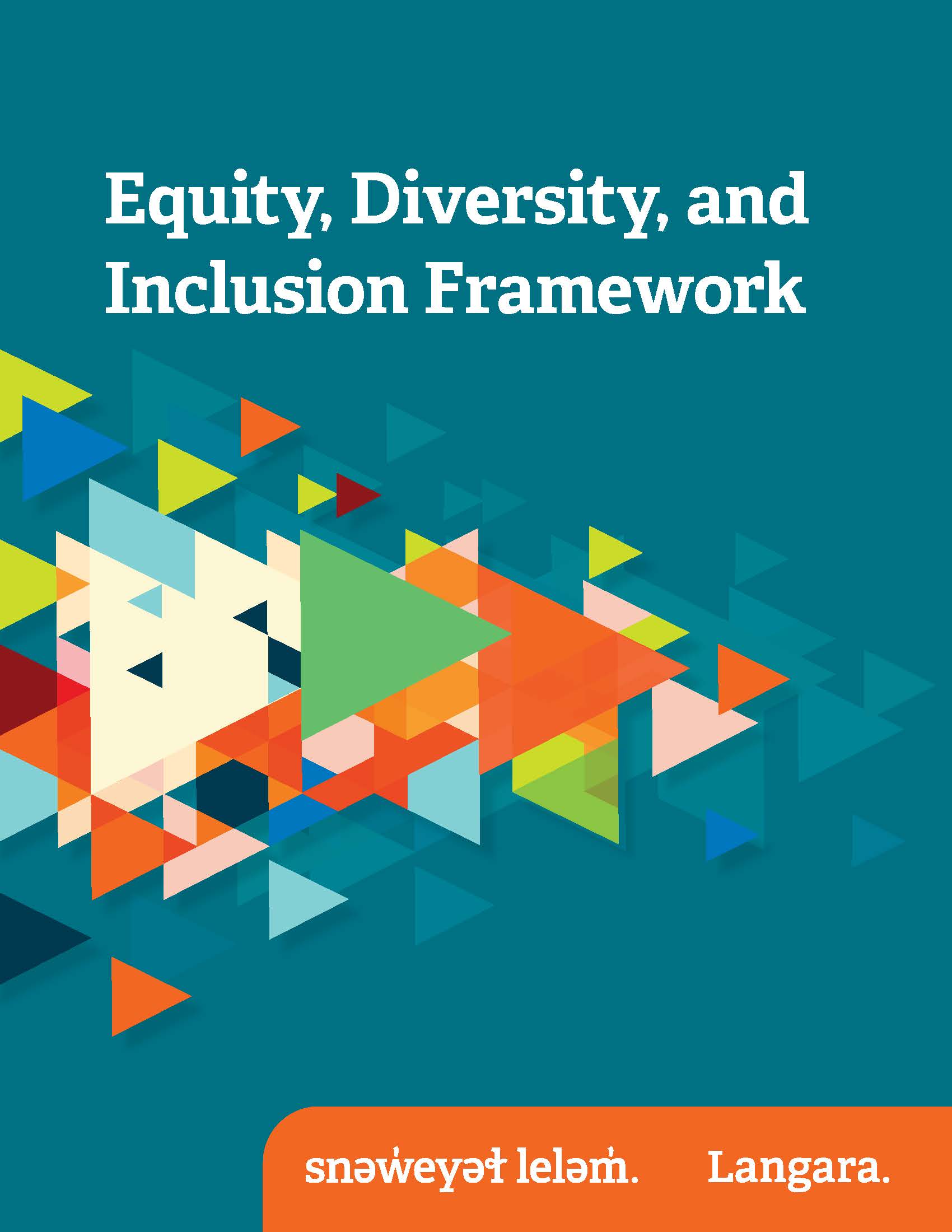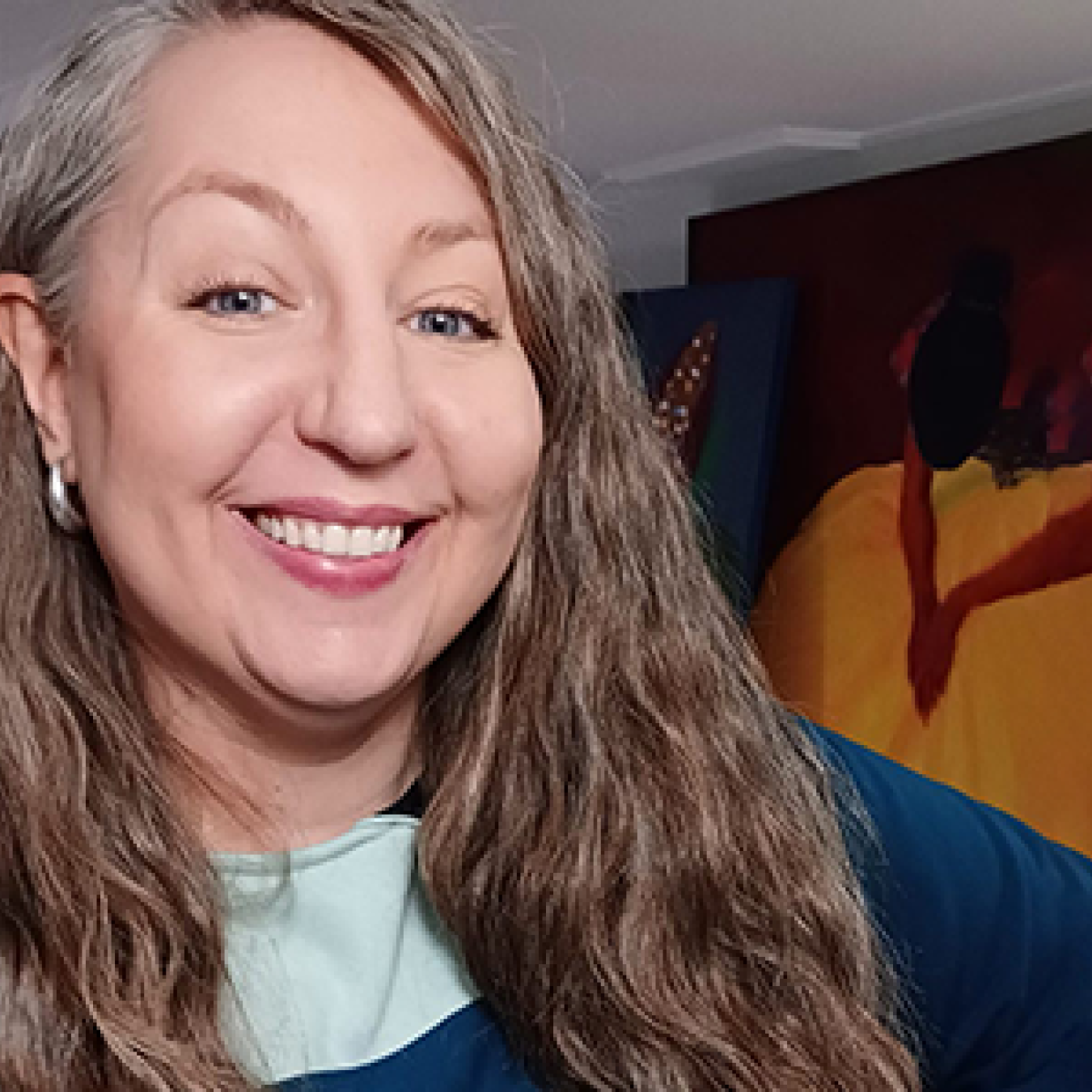Student Resources & Support Services Equity, Diversity, and Inclusion
The Office of Equity, Diversity, and Inclusion (EDI) at snəw̓eyəɬ leləm̓ Langara College was established in 2022 to lead and support efforts that create a more inclusive, equitable, and respectful environment for all students and employees. Our work is grounded in principles of social justice and intercultural understanding, and we are committed to identifying and addressing barriers to equity throughout the institution.
Since its inception, the EDI Office has taken a collaborative approach to fostering change across the College. We support and provide initiatives that build awareness, offer educational opportunities, and strengthen inclusive practices within our learning and working environments. By partnering with departments, student groups, and community organizations, we aim to create spaces where diverse voices are uplifted, valued, and empowered.
In August 2022, Langara welcomed Dr. Joy Walcott-Francis as the College’s first Director of Equity, Diversity, and Inclusion. Under Dr. Walcott-Francis’s leadership, the EDI Office is actively advancing projects that promote a culture of belonging that drives the College towards a more equitable future.
Who are you?
For our team bios, we took a different approach to introducing ourselves. This was done with the recognition that the way we present ourselves in the work environment often centres our professional experience, our education, and our job titles, leaving out important aspects that speak to our whole selves and our relationships with the land and with others. We aimed to challenge this more colonial practice by posing alternative questions.
We took inspiration from Ta7talíya Michelle Nahanee’s “Decolonize...” workbook which asks, “Who are you?”, “Who are your people?”, “Whose land cares for you?” and “Whose land did you grow up on?”. We also felt that it was important to share more about each of our identities with a social positioning statement, outlining the lens and lived experience we show up within equity, diversity, and inclusion work. Our last question asks us how we rest and recharge, focusing on a successful work/life balance and acknowledging that we are much more than just the work we do here at snəw̓eyəɬ leləm̓.
Framework

In March 2024, we released the College's first equity, diversity, and inclusion (EDI) framework. The framework outlines Langara’s EDI work over the next three years (2024-27), and details the actions Langara is committed to taking in the immediate future and beyond.
Also, Langara’s new 2025 Strategic Plan, Weaving a Shared Future, includes a commitment in the Our Culture section to develop and begin to implement an Equity, Diversity, and Inclusion Strategy. This goal arose both from the feedback of our community when developing the plan, and the commitment of our Board of Governors to creating an environment at Langara that welcomes and includes everyone.
The Office of Equity, Diversity, and Inclusion is housed on the main campus grounds of snəw̓eyəɬ leləm̓ Langara College in Vancouver, Bristish Columbia, Canada. The campus is located on the traditional, ancestral, unceded, and present-day territory of the xʷməθkʷəy̓əm (Musqueam) people who have stewarded this land since time immemorial.
We say traditional to recognize how land was traditionally used or occupied by First Nations.
We say ancestral to understand that land is handed down from generation to generation.
We say unceded to acknowledge the land not being turned over to colonial powers by a treaty or other agreement.
We say present-day to remind us that Indigenous people continue to thrive in this area and steward the land. We also say this to intentionally disrupt the notion of Indigenous people in Canada belonging solely to history/the past.
We also want to draw attention to time immemorial, or for as long as can be remembered, which is more than just an arbitrary turn of phrase. To contextualize, this area was first visited by European explorers in the late 1700s and the City of Vancouver was incorporated in 1886, a mere 137 years. Langara College is only 53 years old. This is in contrast to close to 10,000 years (likely more) of Indigenous presence on this land.
Learn more about xʷməθkʷəy̓əm (Musqueam), how the college got its Indigenous name, snəw̓eyəɬ leləm̓, and the relationship between xʷməθkʷəy̓əm (Musqueam) and Langara.
Days of Significance
| Black History Month (February) | International Day for the Elimination of Racial Discrimination (March 21) | International Trans Day of Visibility (March 31) |
| Sikh Heritage Month (April) | Earth Day (April 22) | Asian Heritage Month (May) |
| National Indigenous People's Day (June 21) | Emancipation Day (August 1) | National Day for Truth and Reconciliation (September 30) |
| Orange Shirt Day (September 30) |
Education and Resources
Contact Us
Address:
Office of Equity, Diversity, and Inclusion
Langara College
100 W 49th Avenue
Vancouver, BC
Canada
V5Y 2Z6
We are housed in the A Building. Our office is A171a, near the main entrance, next to the Continuing Studies front desk. See campus maps.
You can connect with us at edioffice [at] langara.ca (edioffice[at]langara[dot]ca).








